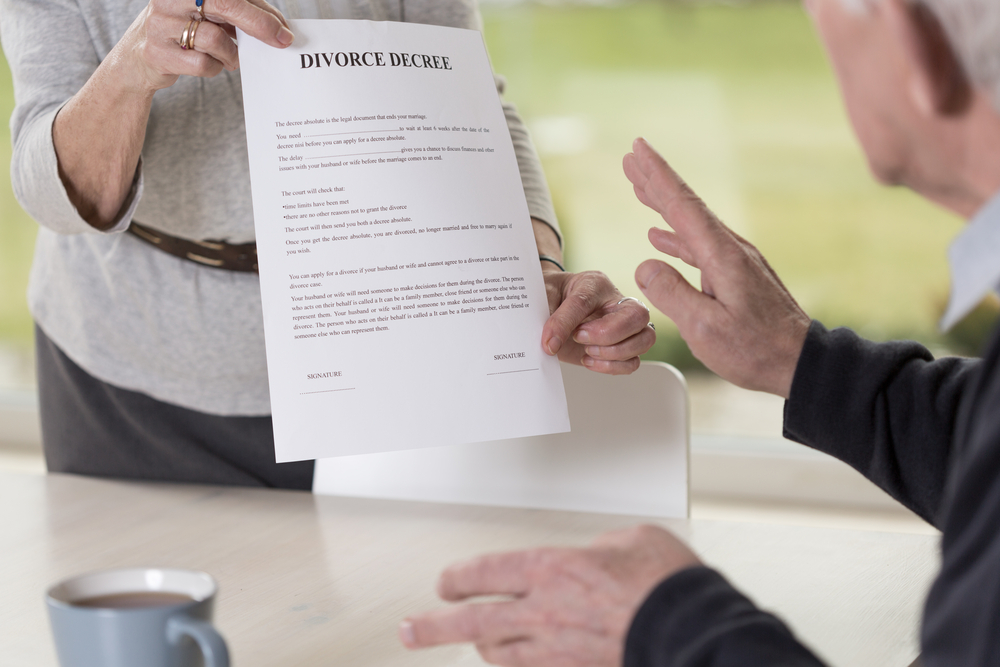Commonly referred to as “gray divorce,” ending a marriage after age 50 can be emotionally and financially overwhelming. While couples can face challenges at any age as they go through the divorce process, there are a number of unique considerations for spouses who part ways later in life, which often include a wide range of complex financial issues involving alimony, property division, and retirement benefits.
Common Issues in Gray Divorce
Spouses in a long-term marriage can accumulate a substantial amount of property together. Under New York’s equitable distribution law, any property acquired by either spouse during the course of a marriage is presumed to be marital property and is subject to division in divorce. Dividing property is not only more complicated in cases involving lengthy marriages than it might be for short-term marriages, but it can also be more emotionally charged. Marital property and separate property might even be commingled in long-term marriages, making division even more complicated.
In addition to the complexities that can come with dividing marital property in a gray divorce, couples who are divorcing after 50 may face challenges in connection with the following issues:
- The family home — The issue of what will happen to the family home is often the most contentious one in a gray divorce. The couple may have lived in the home for decades and watched their children grow up in it. If spouses cannot reach an agreement regarding the marital residence, a judge will need to determine the outcome.
- Alimony/Spousal maintenance — Alimony may be granted to a spouse who was financially dependent upon the other during the marriage. In cases involving lengthy marriages, alimony may be awarded for a longer period of time.
- Retirement benefits — One or both parties may have substantial retirement assets by the time they have reached the age of 50.
- Social Security — Although Social Security benefits are not divided in divorce, it’s important to understand that a spouse may still be entitled to benefits based off the other spouse’s record if they meet the eligibility criteria.
- Health insurance — Once a couple divorces, any health benefits a spouse received from the other terminate. If that spouse does not yet qualify for Medicare, they will need to seek an alternative plan. This should be carefully considered and factored into negotiations before signing a divorce agreement.
The financial impact of a gray divorce can be significant on both spouses. They may face the burden of funding two separate retirements, which can result in delaying retirement, returning to the workforce, or budgeting differently than they had expected. It’s essential to have the representation of a knowledgeable divorce attorney who has a deep understanding of the legal and financial nuances involved in these matters.
Alternatives to Litigating a Gray Divorce
Couples who are divorcing later in life may want to avoid the stressful, lengthy, and costly litigation process. Mediation can be a beneficial out-of-court alternative in gray divorce to resolve the issues that must be determined. Not only is mediation more private, less time-consuming, and more cost-effective, but it can help spouses remain amicable. This can be important for spouses who have adult children or grandchildren and wish to attend family events together without conflict. Similarly, the collaborative divorce process is another method of alternative dispute resolution that can be used to settle divorce matters without resorting to litigation.
Critically, couples can avoid the potential for contentious divorce proceedings by executing a postnuptial agreement once they believe that divorce is imminent. Rather than try to divide property when emotions are running high, a postnuptial agreement can be entered into at any point during the marriage and determine the issues that need to be resolved during divorce in advance. These documents can be vital for couples who did not sign a prenup — and save them time and money that would otherwise be spent on litigation.
Contact an Experienced New York Divorce and Family Law Attorney
If you are thinking about divorcing after 50, it’s crucial to consult with an experienced divorce attorney. The Edelsteins, Faegenburg & Brown, LLP has been providing compassionate counsel and trusted legal guidance for clients facing divorce and a wide variety of family law matters for more than 70 years. Contact us by calling (212) 425-1999 to schedule a consultation to learn how we can help.

